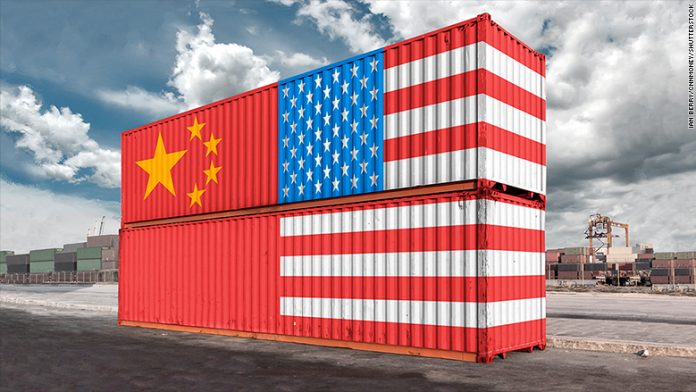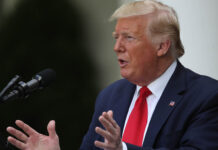
SHANGHAI: China expressed confidence on Wednesday that it can reach a trade deal with the United States, despite fresh warnings from President Donald Trump that he would revert to more tariffs if the two sides cannot resolve their differences.
The remarks by the Chinese Commerce Ministry follow a period of relative quiet from Beijing after Trump and Chinese leader Xi Jinping reached a temporary truce in their trade war at a meeting over dinner in Argentina on Saturday.
In a brief statement on its website, the ministry said China would try to work quickly to implement specific issues already agreed upon, as both sides “actively promote the work of negotiations within 90 days in accordance with a clear timetable and road map”.
“We are confident in implementation,” it said, calling the latest bilateral talks “very successful”.
Trump, via Twitter, held out the possibility of an extension of the ceasefire but warned tariffs would be back on the table if the talks failed to bear fruit.
“The negotiations with China have already started. Unless extended, they will end 90 days from the date of our wonderful and very warm dinner with President Xi in Argentina,” Trump tweeted.
He said he would place “major tariffs” on Chinese goods imported into the United States if his administration is unable to reach an effective trade deal with Beijing.
“We are either going to have a REAL DEAL with China or no deal at all – at which point we will be charging major Tariffs against Chinese product being shipped into the United States. Ultimately, I believe, we will be making a deal – either now or into the future,” Trump wrote in a post within minutes of the Commerce Ministry statement.
The threat of further escalation in the trade war between the world’s two largest economies has loomed large over financial markets and the global economy for much of the year, and investors initially greeted the ceasefire with relief.
But the mood has quickly soured on scepticism that the two sides will be able to reach a substantive deal on a host of highly divisive issues within the short negotiating period agreed.
Failure would raise the spectre of a major escalation in the trade battle, with fresh U.S. tariff action and Chinese retaliation possibly as early as March.
The White House says China had committed to start buying more American products and lifting tariff and non-tariff barriers immediately while beginning talks on structural changes with respect to forced technology transfers and intellectual property protection.
Sources told that Chinese oil trader Unipec plans to resume buying U.S. crude by March after the Xi-Trump deal reduced the risk of tariffs on those imports. China’s crude oil imports from the U.S. had ground had to a halt.
MARKETS DOWN
Global financial markets tumbled on Tuesday as doubts over what could realistically be accomplished in the tight negotiating window added to concerns about fading global growth.
The benchmark Shanghai stock index slipped 0.2 percent by midday on Wednesday.
“Despite a temporary de-escalation of hostilities following the G-20 summit, the relationship between the U.S. and China will remain contentious,” Moody’s Investors Service in a report.
“Narrow agreements and modest concessions in the ongoing trade dispute will not bridge the wide gulf in their respective economic, political and strategic interests.”
Officials from the U.S. and a number of other major economies have often criticised China for its slow approach to negotiations and not following through on commitments.
China has said comparatively little about the Trump-Xi agreement after senior Chinese officials briefed the media following the meeting, and there have been some differences between U.S. and Chinese accounts of what the deal entails.
A Chinese official told they were “waiting for the leaders to return” before publicising details.
President Xi and his most senior officials are due back in China on Thursday having visited Panama and Portugal since leaving Argentina.
On Wednesday, the Global Times tabloid, which is run by the Chinese Communist Party’s main newspaper, said myriad statements from the Trump administration about the deal – including the agreement that China would buy $1.2 trillion in additional U.S. goods – were designed to highlight or even exaggerate facets of the deal that benefitted the United States.
“Reaching an agreement within three months is a spur to not only China, but also the U.S. If the two sides fail to reach a deal, all the White House promises will be invalid,” it said.
“It will be a win-win situation if a deal is realised. But if not, more fights and talks will continue alternately for a longer while. Chinese society should maintain a calm attitude.”






